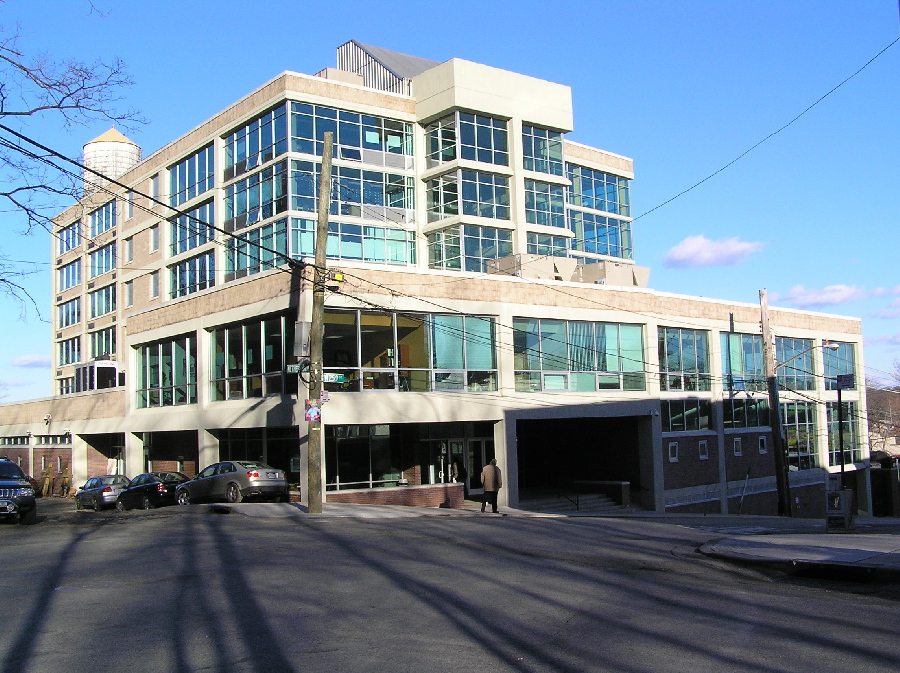Editorial: The Need For Soul Searching By Our Jewish Institutions
One of the most powerful elements of the Yom Kippur service is the “Al Chet” prayer as congregants beat their breasts and recite a long litany of declarations that begins, “For the sin which we have committed … .”
In Jewish tradition, we can’t be forgiven for a sin unless and until we acknowledge it and seek forgiveness. And each of us knows how difficult it can be to own up to a wrongdoing, especially in public.
That’s why it is worth noting when the leaders of a communal institution have the collective courage to come forward and take responsibility for a past grievance. Two such instances occurred this past week.
Hillel International has completed its six-month investigation into “claims by staff members of sexual harassment by donors,” according to a statement intended only for staff and lay leaders but obtained by The Jewish Week. Hillel found that “the complaints were justified, and that the individuals had been subjected to inappropriate comments and/or suggestions by one or more of our donors.” One of those donors was philanthropist Michael Steinhardt, who issued an apology. (See story here.)
 |
| On Hillel probe: Mega-philanthropist Michael Steinhardt, above, responded to The Jewish Week that he was “sorry and deeply regret[s] causing any embarrassment, discomfort or pain, which was never my intention.” |
The statement will not be made public and did not name the donors, as
some in the community would have preferred. (Sources close to the
investigation said it was “a very small number.”) But the fact that
Hillel voluntarily initiated the lengthy, costly and painful process of
an internal investigation, through an outside law firm, is admirable.
Shira Berkovits, the founder and CEO of Sacred Spaces, an organization that seeks to prevent institutional abuse in the Jewish community and was engaged by Hillel 10 months ago, told us it is all too rare for organizations facing allegations of this nature to undertake an investigation into their own handling of a case. More often, she said, organizations act in the face of media exposure or a lawsuit. To act “prior to any such public exposure is a form of cheshbon hanefesh, or soul searching, for which Hillel should be commended.”
Last Saturday night, SAR Academy of Riverdale marked its 50th anniversary with a range of remembrances, videos, performances by the student choir and a dinner with many hundreds of attendees. Amidst the celebratory mood and praise for the visionaries who merged three struggling day schools — Salanter, Akiba and Riverdale — and created one innovative and vibrant success, Rabbi Irving “Yitz” Greenberg, one of the founders and honorees, struck a sober note.
 “For all this excellence, I must acknowledge a tragic failure,” he told the hushed crowd. He noted that an investigation
this year found that “four decades ago we had a faculty member who
abused students … and was not held accountable for his actions,”
referring to the case of Stanley Rosenfeld, who spent years teaching at
SAR, The Ramaz School and Westchester Day School and was alleged to have
abused scores of students. In 2001, he plead no contest to two counts
of sexual molestation.
“For all this excellence, I must acknowledge a tragic failure,” he told the hushed crowd. He noted that an investigation
this year found that “four decades ago we had a faculty member who
abused students … and was not held accountable for his actions,”
referring to the case of Stanley Rosenfeld, who spent years teaching at
SAR, The Ramaz School and Westchester Day School and was alleged to have
abused scores of students. In 2001, he plead no contest to two counts
of sexual molestation.
“We failed to protect those students, and we feel their pain,” Rabbi Greenberg said. “This is a sin for which there is no forgiveness. Thousands more [students] were treated right, but that is no consolation. Each child is of infinite value, so this is an infinite failure.”
It was a powerful statement, along with a pledge to “keep this painful memory before us constantly” and an assurance that “strong steps” have been taken to prevent further occurrences.
Apologies and new policies, however vital, do not take away the pain for those who have suffered. But they are important starting points for Hillel and SAR, and a model, however flawed and delayed, for other institutions in our community to look inward honestly and have the courage to assess themselves and pledge to do better.
https://jewishweek.timesofisrael.com/editorial-the-need-for-soul-searching-by-our-jewish-institutions/
Shira Berkovits, the founder and CEO of Sacred Spaces, an organization that seeks to prevent institutional abuse in the Jewish community and was engaged by Hillel 10 months ago, told us it is all too rare for organizations facing allegations of this nature to undertake an investigation into their own handling of a case. More often, she said, organizations act in the face of media exposure or a lawsuit. To act “prior to any such public exposure is a form of cheshbon hanefesh, or soul searching, for which Hillel should be commended.”
Last Saturday night, SAR Academy of Riverdale marked its 50th anniversary with a range of remembrances, videos, performances by the student choir and a dinner with many hundreds of attendees. Amidst the celebratory mood and praise for the visionaries who merged three struggling day schools — Salanter, Akiba and Riverdale — and created one innovative and vibrant success, Rabbi Irving “Yitz” Greenberg, one of the founders and honorees, struck a sober note.

SAR Academy in Riverdale, NY.
“We failed to protect those students, and we feel their pain,” Rabbi Greenberg said. “This is a sin for which there is no forgiveness. Thousands more [students] were treated right, but that is no consolation. Each child is of infinite value, so this is an infinite failure.”
It was a powerful statement, along with a pledge to “keep this painful memory before us constantly” and an assurance that “strong steps” have been taken to prevent further occurrences.
Apologies and new policies, however vital, do not take away the pain for those who have suffered. But they are important starting points for Hillel and SAR, and a model, however flawed and delayed, for other institutions in our community to look inward honestly and have the courage to assess themselves and pledge to do better.
https://jewishweek.timesofisrael.com/editorial-the-need-for-soul-searching-by-our-jewish-institutions/



